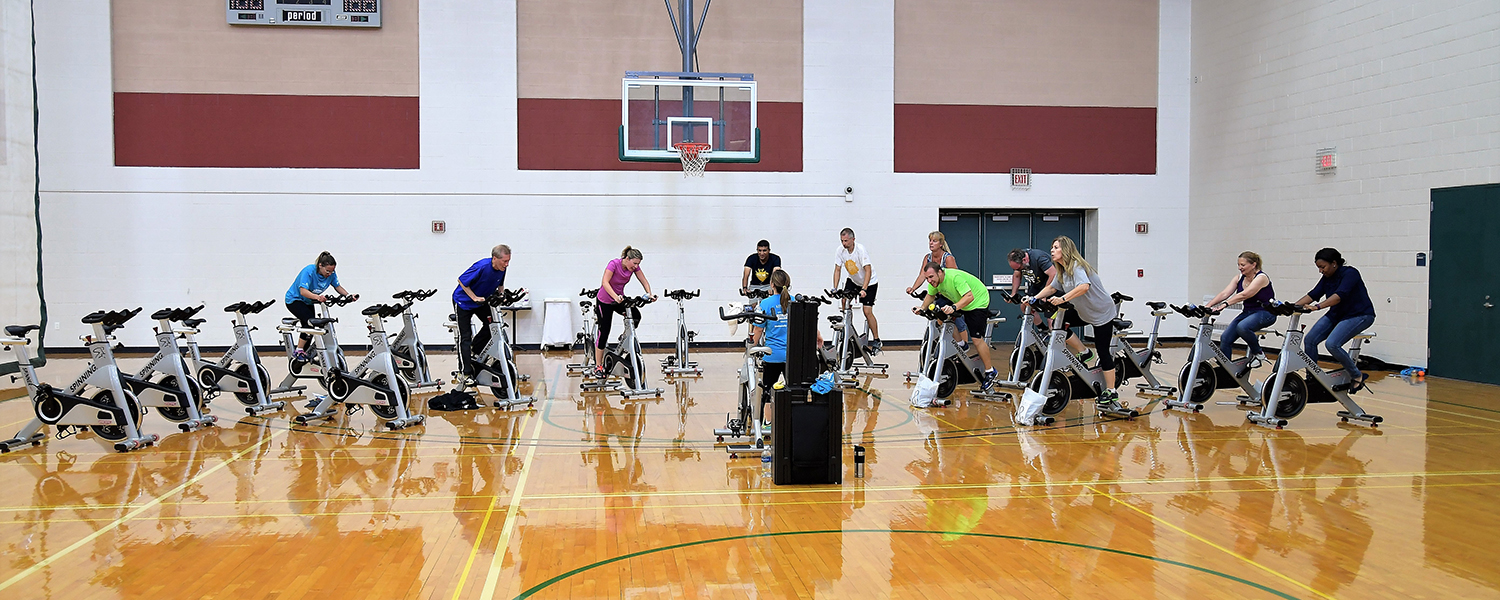Obtaining and maintaining work-life balance is no easy task, and that is why ∫⁄¡œÕ¯ offers numerous options in its employee wellness program to help faculty and staff achieve this balance.
Programming is available to all faculty and staff to help support their personal wellbeing. These opportunities are free to employees and have long-term benefits. Rather than teaching crash diets and short-term changes, Kent State’s employee wellness program is designed to support or make changes that will benefit individuals for the rest of their lives.
Several Kent State employees who have taken advantage of the university’s wellness programs have reported success, including weight loss, reduced stress levels, more consistent wellness and fitness routines, and more productivity and energy.
Two of such employees, who embraced this lifestyle change, are Nicole and Kayla, who prefer to be identified only by their first names. They both took advantage of the Weight Watchers at Work program where they collectively lost more than 100 pounds.
“Weight Watchers at Work changed my life by changing my perspective on food and fitness,” Nicole says. “Much of what we value in this program is ‘beyond-the-scale victories,’ meaning accomplishments not related to weight.”
The Weight Watchers at Work program meets every Wednesday at noon during employees’ typical lunch hour for weigh-ins and discussions. These meetings have helped faculty and staff to build friendships that have fueled their successes. The program is also open to students and dependents of members of the Kent State community.
“Having a support system is so important,” Kayla says. “Being able to go to these weekly meetings with people who are not only your coworkers, but actually some of your friends, makes it seem like less of a chore. The sense of comradery these meetings build between you and people who are going through the same program is amazing.”
Kent State’s Employee Wellness Director Kim Hauge says it is rewarding to hear and learn about the life-changing effects employees have had because of the university’s wellness program.
“Life can be a challenge, and the workplace can become either a hindrance or a supportive resource,” Ms. Hauge says. “Demonstrating our commitment to their wellbeing allows them to be better employees, parents and whatever other roles they have to balance.”
On a Mission to Make Wellness a Lifestyle at Kent State
Ms. Hauge loves that her job allows her to provide help and support to Kent State employees.
“Without the chance to stop and recharge, that’s when we start to burn out and experience other adverse health issues,” Ms. Hauge says. “We are always asking ‘what can we do to help people take that time to take care of themselves?’ We are here to create the new norm in this high-wired society of self-care and I think we are on the right track to doing so.”
She hopes that the university’s wellness programs not only help employees in their lives but also changes the conversation about overall health.
“It’s okay to have the conversations about mental health, depression or weight issues in the workplace and know you can find support,” Ms. Hauge says. “With how intimate personal health can get, it’s important to know that we do have great resources and services for our employees to support them personally, professionally and health-wise so that they can continue to thrive.”
Most wellness events are offered during the lunch hour, but some programs are offered in the morning or evening. Ms. Hauge explains that they try to move the times around so everyone has the chance to attend.
“We offer many of our workshops via livestreaming so that employees, regardless of campus or location, can be a part of the program,” Ms. Hauge says. “Where possible, we have recorded programs and put them up on Blackboard for our employees to access. This has created a greater sense of inclusion and support for all faculty and staff.”
These programs are beneficial for providing employees with a supportive and safe community.
“I believe that the added support provides an outlet from both the day-to-day tasks and the overstimulation that today’s technology has created,” Hauge says. “These programs give employees a moment to step back, re-evaluate health behaviors that may not be serving them well and replace them.”
Other opportunities that employees have are Free Fridays at the Student Recreation and Wellness Center, lunchtime bike rides with Flashfleet, walk and talks, on-site health screenings to Know Your Numbers, stress management workshops and more. A full list of offerings is available on the Employee Wellness Calendar.
Collaborating on Health and Wellness Initiatives
Kent State’s Employee Wellness office has collaborated with the Wellness Council of America (WELCOA) for the past couple years to compete in the On the Move Challenge. In this challenge, businesses, universities and other employers across the country seek to incorporate more movement into their employees’ workday, while also focusing on other areas of health and wellness in a fun, gamified platform. This spring, Kent State placed 17th in the nation and was recognized as one of the top 25 most active workplaces.
“We are currently piloting a University Challenge with WELCOA and other institutions across the country,” Ms. Hauge says. “We’ll gain some additional insight from this competition as to how it may benefit university employees and possibly expand to the student population as well.”
All of these employee wellness opportunities seek to improve the lives of those involved with Kent State. They are on track to change social norms around employee physical and mental health.
For more information about Kent State’s employee wellness offerings, visit www.kent.edu/hr/benefits/wellness.

